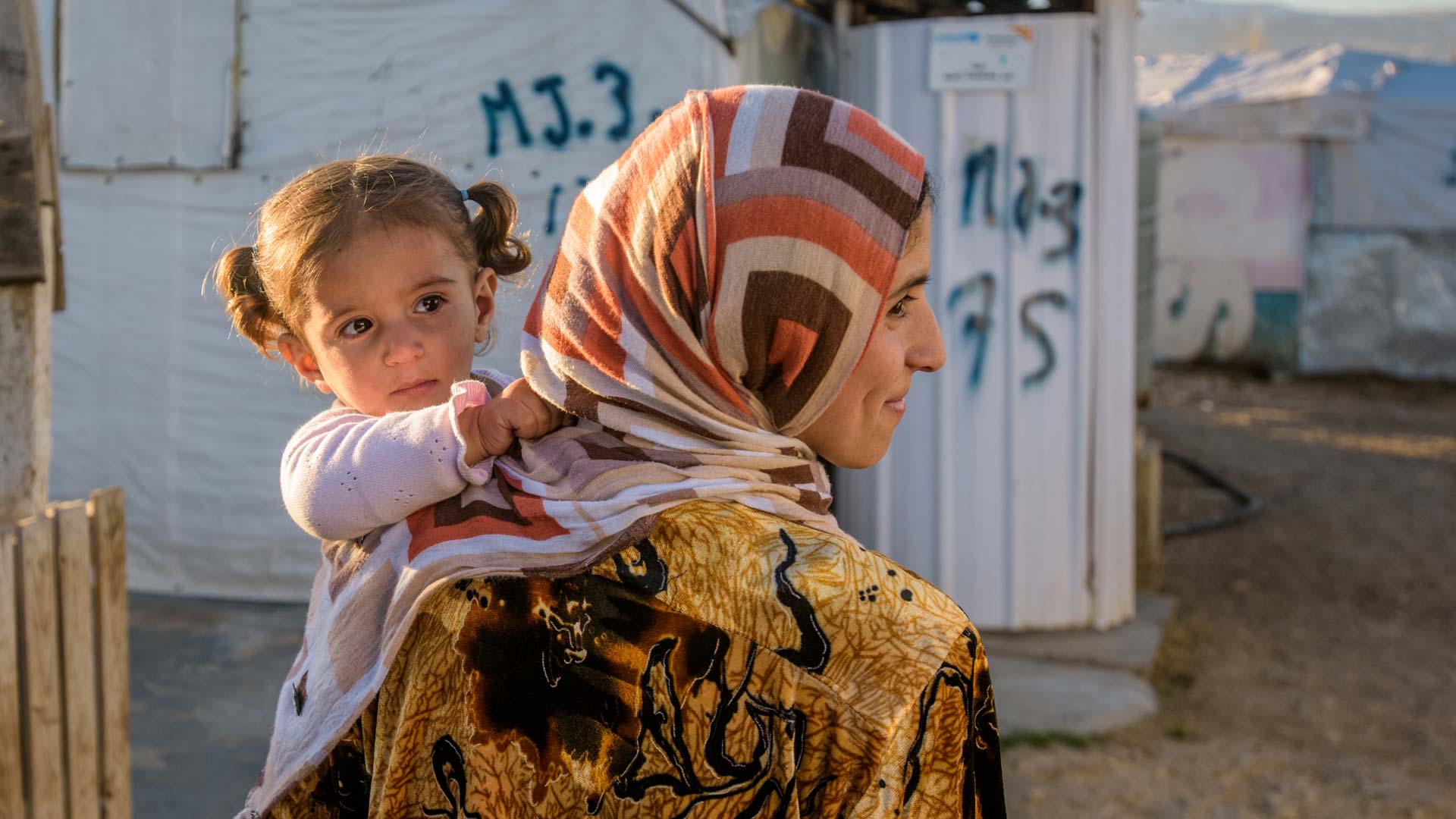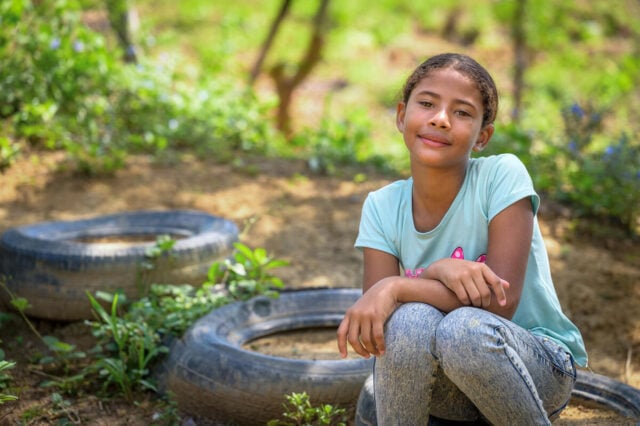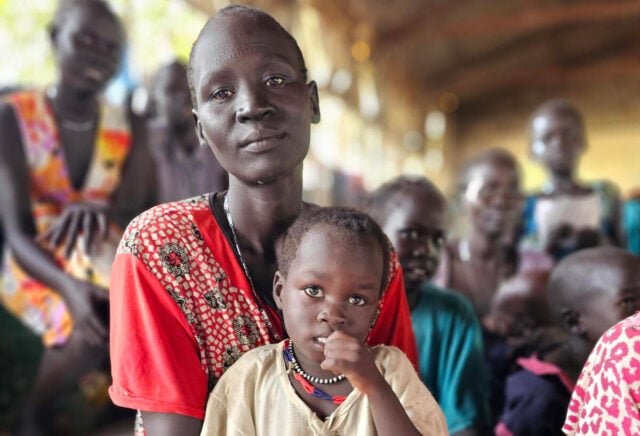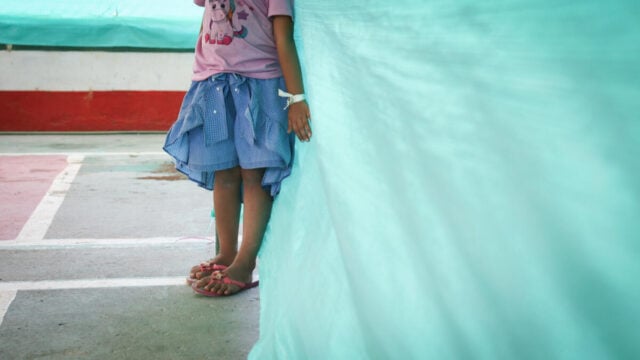For most mothers, daily life revolves around the items on each day’s to-do list: cook, shuttle kids, head to work, clean, help with homework, get kids to bed.
In some ways, daily life for refugee moms is similar. They do many of the same things for their own families. But getting those things done looks entirely different for a mom whose family has been forced from their home by war.
1. Shower and get ready for the day
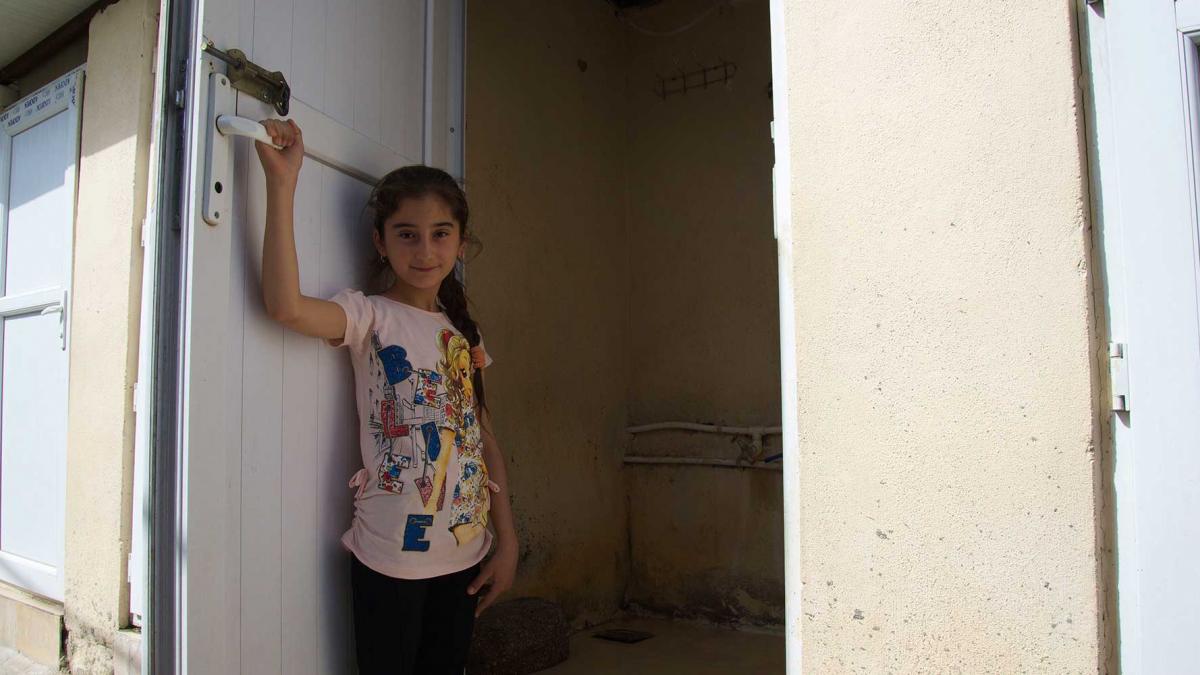
- Our “home” doesn’t have a bathroom, so I pack my things and go outside to wait for the shower.
- In Jordan and Iraq, as many as 50 people share one bathroom. How many people do you share a toilet with?
- It’s not feasible to shower every day, and we often wear the same clothes we slept in.
- There’s not much privacy. It makes me nervous, both for myself and my 11-year-old daughter.
2. Drop my son off at school
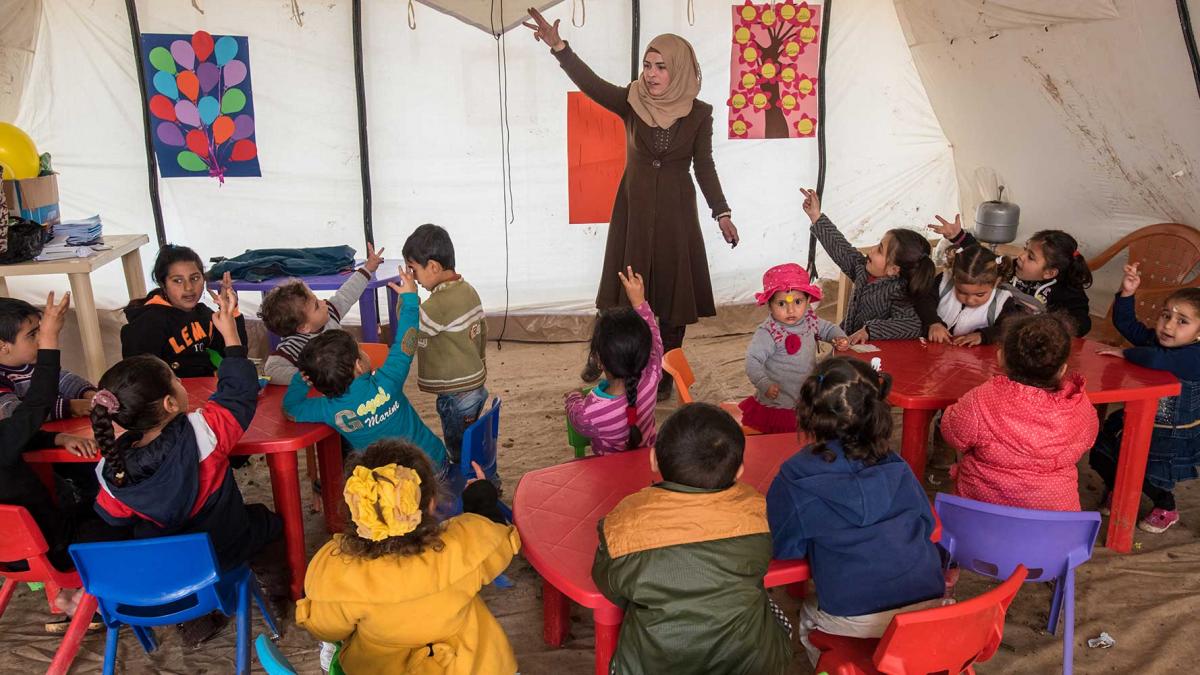
- In our tent settlement, there’s an early education center. It’s run by one of the aid groups working here and it helps kids get ready for school. If they’re not ready to transition into the Lebanese school system, they get left behind.
- Frankly, we’re lucky to have it — not every camp or settlement has access to a place like this.
- But my son Omar just stands in the door watching the other children playing. He’s so hesitant. Sometimes he takes a few steps in, and I can tell that he wants to stay, but he can’t quite do it.
- I know I’m protective. I don’t always know how much to let him move around the camp on his own. I want to keep him safe and this place is so different from the structure and security of our home and community in Syria.
3. Take the kids to work
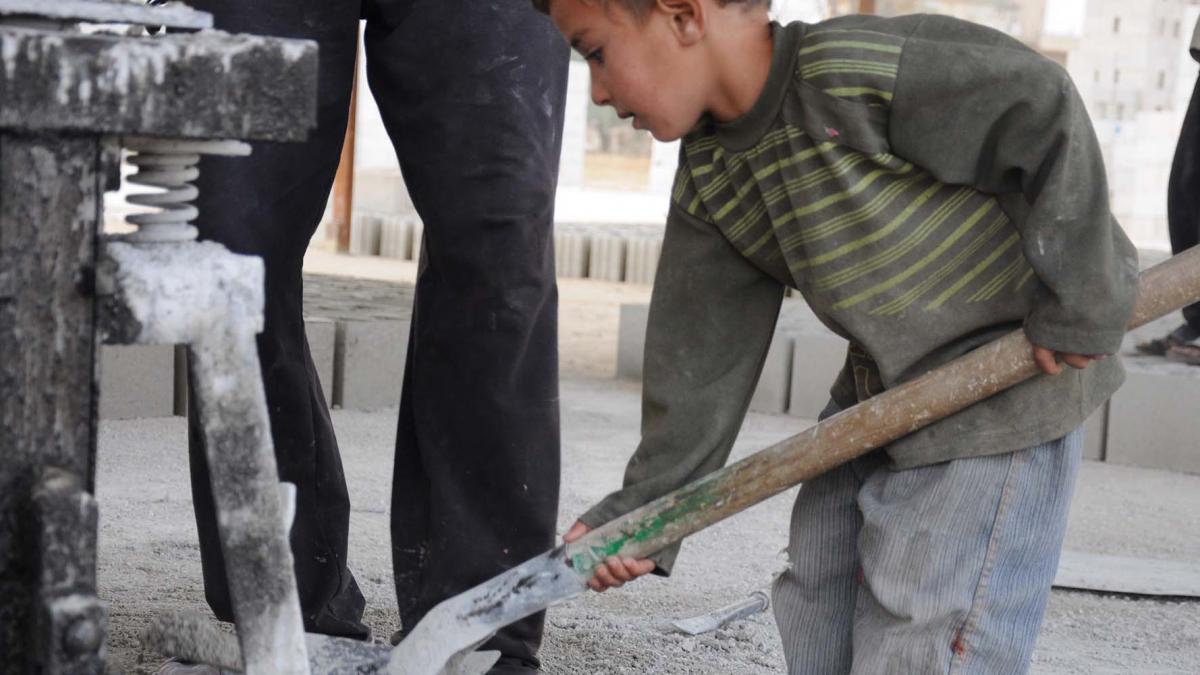
- We don’t have an education center – and even if we did, we couldn’t afford to use it. If we don’t work – all of us – we can’t pay rent on the land we use.
- So we make and stack bricks for 8 cents a brick.
- My 12-year-old, Jomaa misses school so much. He says he’s forgetting what he learned.
- My 4-year-old Saad should be playing, not shoveling brick dust. We pulled out an old toy fire truck and he didn’t know what to do with it. He’s forgotten how to play.
4. Do the laundry
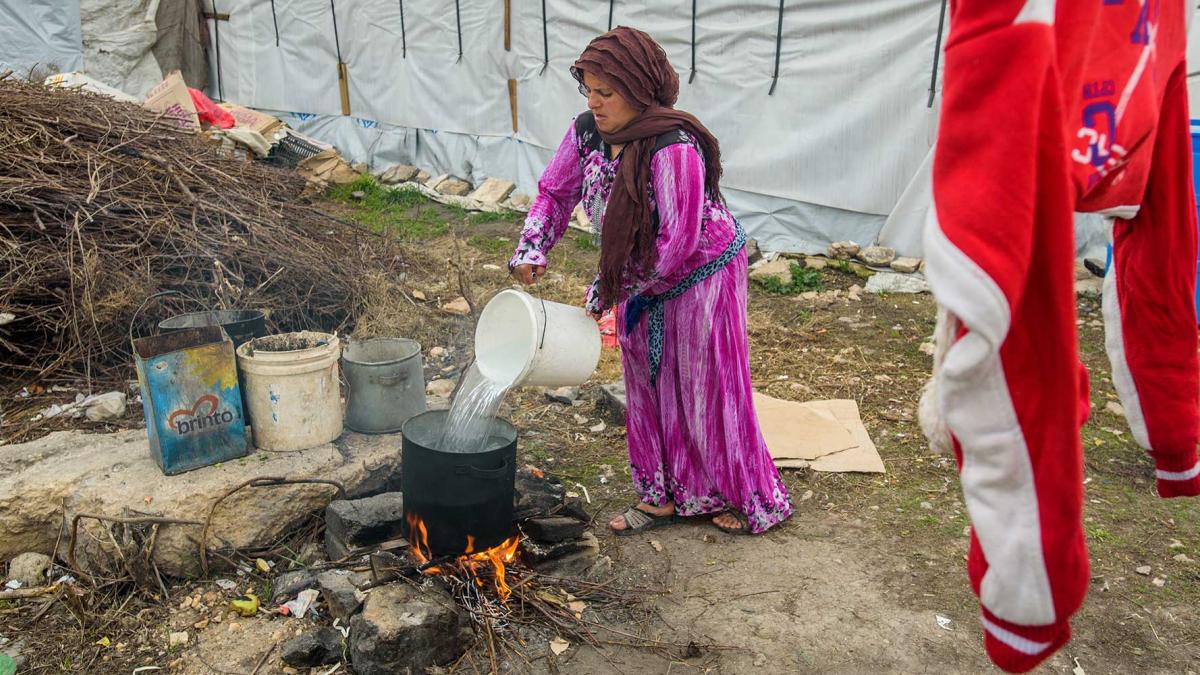
- We don’t have a washer or dryer, so laundry has a lot of steps to it: build a fire, get water from the tank and boil it, soak and scrub the clothes and hang them to dry outside.
- The sun’s out, so the clothes should dry in a day. They get dusty and smell like smoke, but that’s still better than having to hang them inside when it’s raining or snowing. Inside, they’re in the way for days and never really get dry.
5. Take my son to the doctor
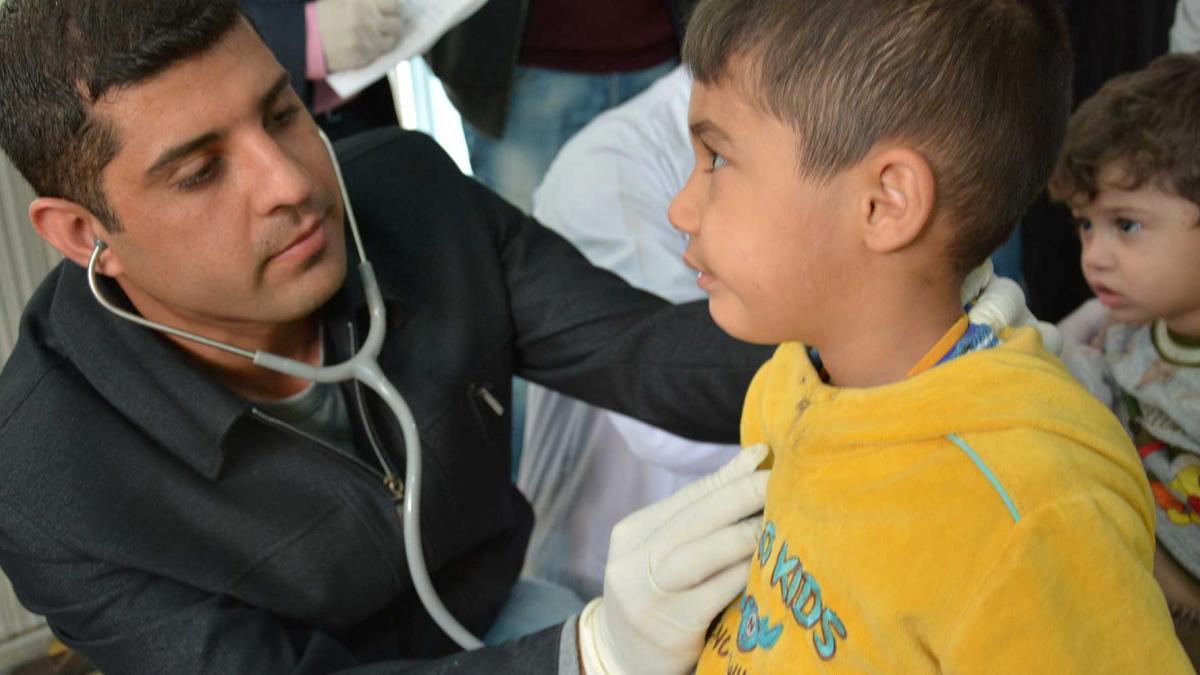
- Check the bus schedule. We have to take two buses to get there.
- Sometimes I don’t have bus fare, so I have to walk and carry him.
- Jamal likes to go to the physiotherapist. It’s good for his injured foot, and they are kind to him. But it’s hard to afford the treatment.
6. Clean up and help with homework
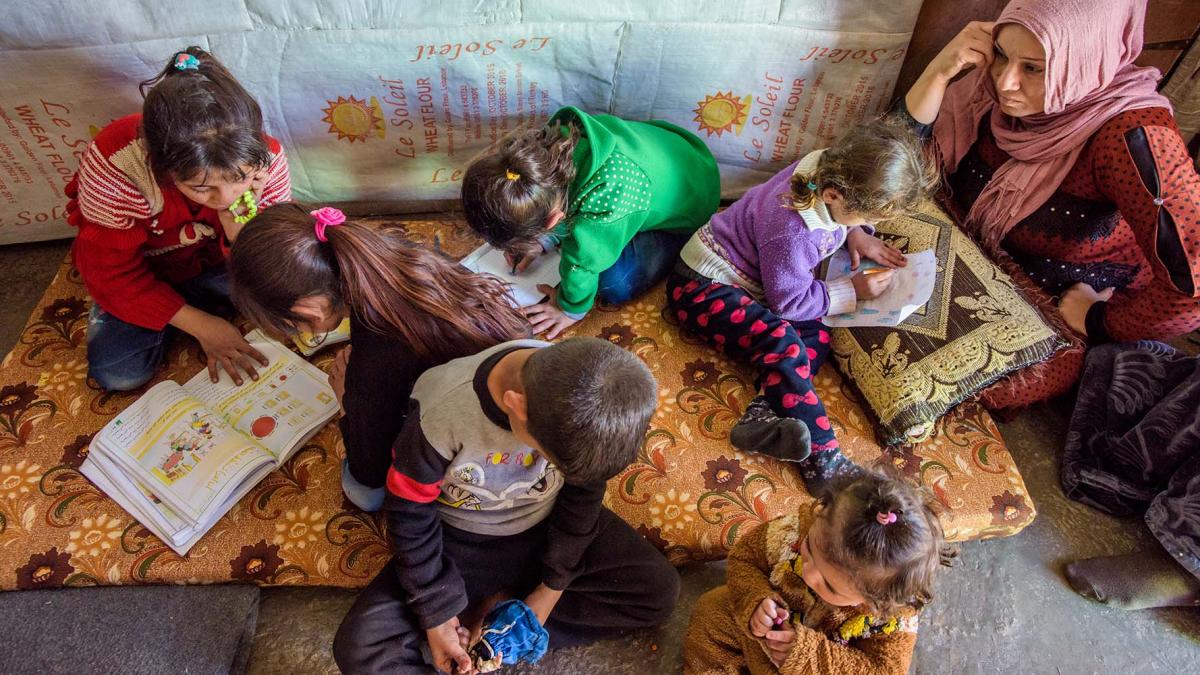
- Fold and pile up sleeping mats and blankets from last night. Our family of seven shares one tent – so the one room we have has to work.
- We leave shoes at the door, but the floor is dusty when it’s dry and so muddy when it rains. I feel like I’m always cleaning.
- If the kids have any homework, it has to be done early in the afternoon. Once the sun goes down, our light inside is really minimal.
- I work hard to keep the tent clean and make it a better place to live. I found flour sacks in the garbage and sewed them together to make walls for our tent, and I found some fabric to make the inside look better.
7. Call my husband in Syria
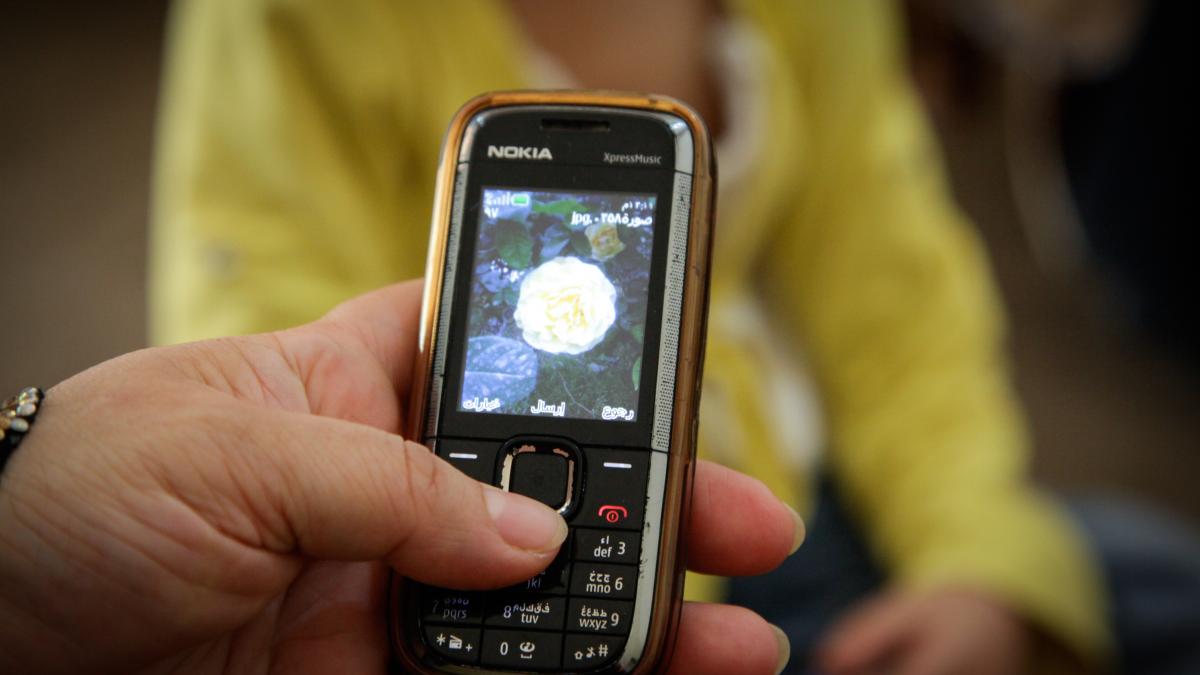
- My husband is the eldest son, so he stayed in Syria to care for his family.
- The place is under siege, he says. There are raids, bombs. We’re constantly afraid for his life.
- He can’t call me from Syria, so sometimes I call him, always praying that he answers the phone.
- Kids need a father. They need to feel protected and provided for – to feel like their family is complete. They miss him, and I really wish he were here with us.
8. Referee the kids
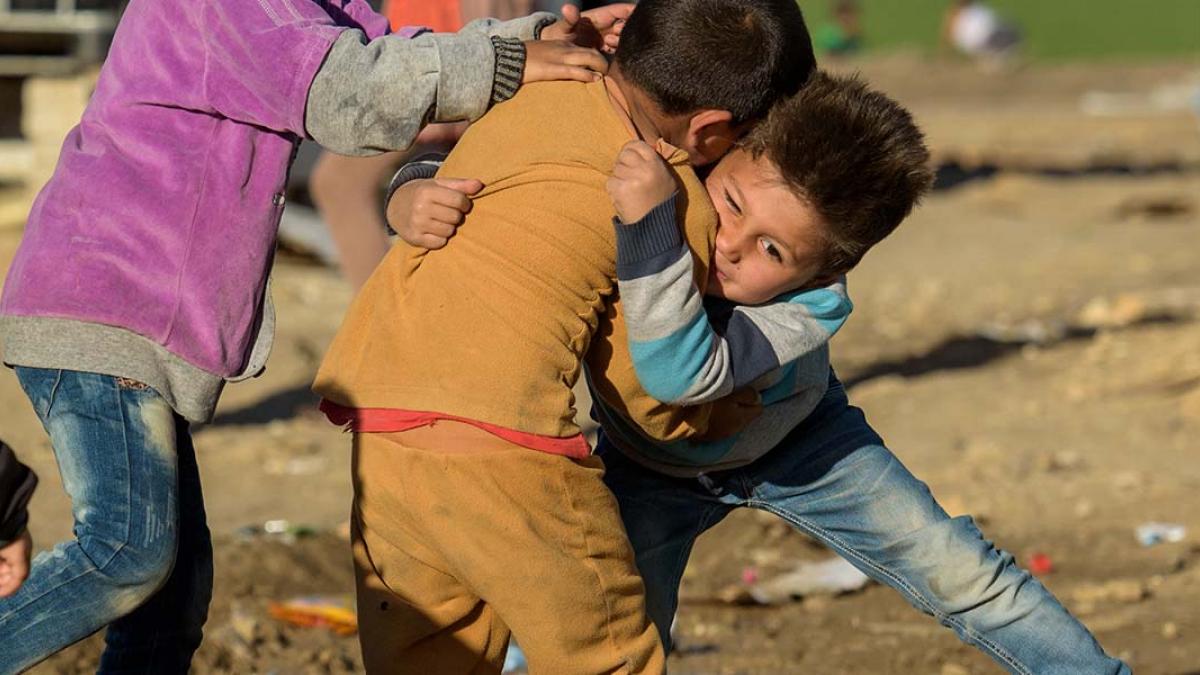
- Fortunately, my kids don’t have to work, but we don’t have access to a children’s center, and I’m scared to let them stray too far.
- I think they ask, “What can we do, Mom?” about a million times each day. They’re bored all of the time. I see kids just kind of run wild around the settlement. I don’t want my kids doing that.
- They’re always fighting with each other. It’s exhausting.
9. Cook dinner
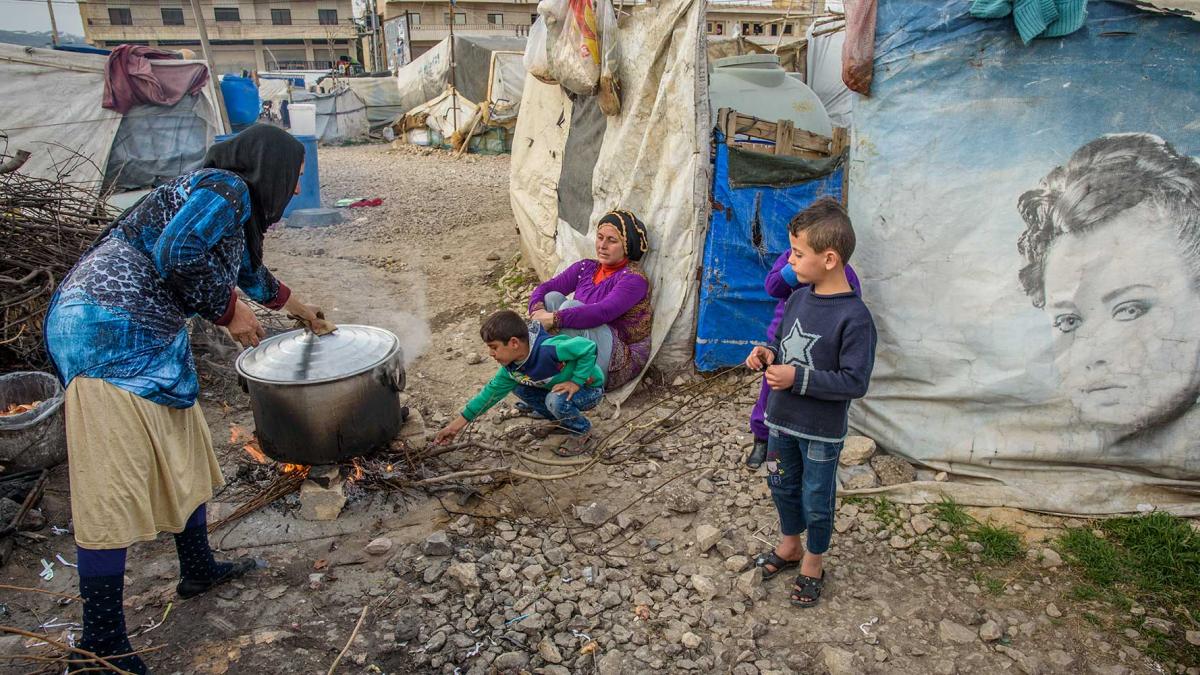
- Tell the kids for the one-millionth time, “Yes, we’re having potatoes for dinner again.” It’s the one thing we can afford that will actually feed all of us.
- It’s an afternoon event to get everything peeled, cut up, and cooked.
- I cook over an open fire. In some places, people can at least access a shared single burner.
- Either way, it’s a lot like camping. Believe me, camping stops being fun after you’ve been doing it for months or years.
10. Tuck kids into bed
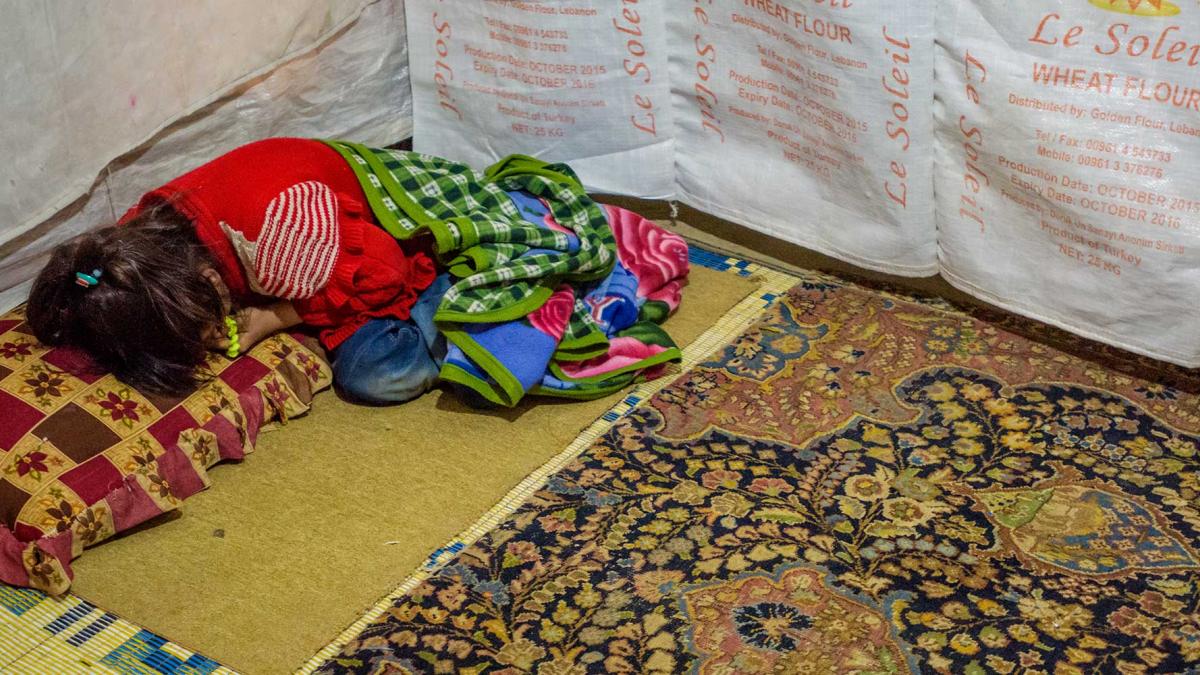
- Pull out the bed mats and blankets we rolled up and put away this morning.
- Say goodnight, but the kids don’t sleep. When they doze off, they have nightmares about the things they’ve experienced.
- My husband was killed when our farm was bombed a few months ago. My three kids and I found his body. I feel so helpless to protect and comfort them because I know they can never un-see what they’ve seen.
This list represents the experiences of several refugees and internally displaced people in places where World Vision is working.
